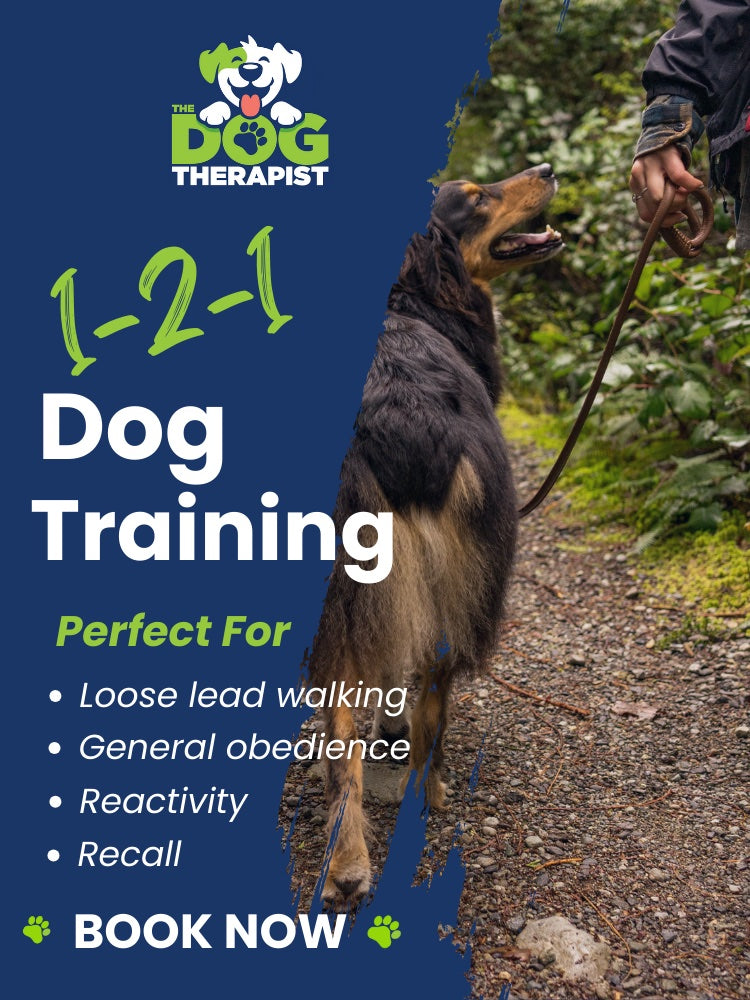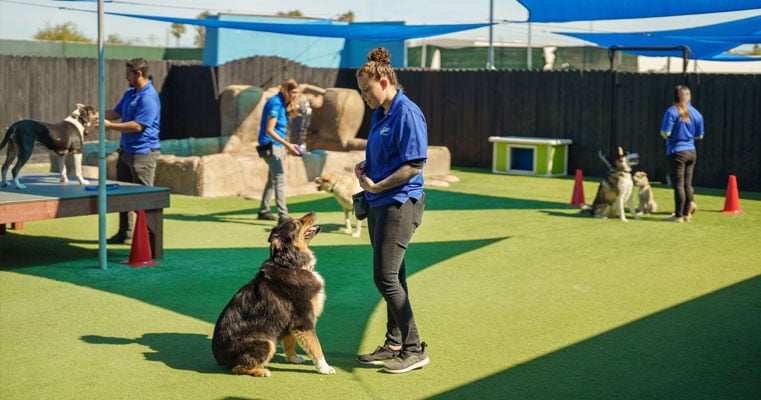Dog Training and Socialization: Key to a Well-Rounded Dog
Dog Training and Socialization: Key to a Well-Rounded Dog
Blog Article
The Ultimate Guide to Dog Training: Change Your Animal's Actions
Effective canine training is essential for promoting a harmonious relationship between animals and their proprietors. The ins and outs of canine habits and the implementation of organized training methods play a vital duty in this procedure. By recognizing the principles of favorable reinforcement, consistency, and socialization, pet proprietors can browse usual difficulties that occur during training. This guide not just intends to equip you with the necessary devices to transform your pet's actions yet additionally invites you to check out exactly how these foundational concepts can bring about a much deeper link with your pet. What might be the very first step in this transformative journey?
Understanding Canine Actions
Comprehending dog habits is essential for effective training and an unified relationship in between dogs and their proprietors. A pet's actions is influenced by a mix of genetics, atmosphere, and experiences. Dog training. Identifying these aspects permits proprietors to customize their training approaches to meet the specific demands of their animals
Pet dogs connect primarily with body movement, articulations, and facial expressions. For example, a wagging tail can indicate exhilaration or happiness, while a tucked tail may signify worry or entry. Observing these hints enables owners to react appropriately, reinforcing favorable habits and resolving adverse ones successfully.
Furthermore, comprehending the social structure of pet dogs can give insights into their habits. Pets are pack pets, and they grow in an organized environment. Developing clear borders and constant policies can avoid complication and advertise a sense of protection.
Additionally, identifying the natural instincts of canines, such as the urge to dig or go after, is crucial. These reactions can be redirected via suitable outlets, such as play or exercise. By comprehensively recognizing these behavioral aspects, owners can cultivate a favorable training experience, ultimately resulting in a obedient and well-adjusted canine companion.
Crucial Training Techniques
Effective pet dog training relies upon a variety of crucial methods that can substantially boost the understanding procedure for both the dog and the proprietor. One basic method is favorable support, which entails satisfying preferable behaviors with treats, praise, or play. This technique encourages pets to repeat the habits that lead to favorable end results, cultivating a relying on relationship between the animal and proprietor.
Another trick method is consistency in commands and assumptions. Utilizing the exact same spoken hints and hand signals assists the dog comprehend what is required, lowering confusion and promoting quicker discovering. Additionally, developing clear boundaries and regulations is essential for effective communication.
Socialization is additionally a crucial component of training. Subjecting pets to various atmospheres, people, and various other animals helps them establish proper social abilities and reduces anxiety in unknown circumstances.
Finally, perseverance and timing are crucial. Training sessions ought to be brief yet frequent, ensuring that the pet dog continues to be involved and receptive. By using these essential methods, owners can produce a structured and positive training experience that promotes great actions and reinforces the bond with their canine friends.
Developing an Educating Schedule
How can a well-structured training routine improve a dog's learning experience? A training schedule provides consistency, guaranteeing that pets receive normal, focused direction. This predictability assists canines understand what is anticipated of them, reinforcing their understanding and enabling far better retention of commands and actions.
When producing a training routine, it is necessary to take into consideration the pet dog's age, type, and individual personality. Young young puppies may profit from much shorter, a lot more regular sessions, while adult pet dogs may grow with longer, less regular training periods. Incorporating a selection of tasks can additionally maintain the sessions engaging, stopping dullness and advertising excitement for learning.
Furthermore, scheduling training sessions at particular times of the day can help strengthen a regimen. For instance, coupling training with day-to-day strolls or playtime can create a positive organization with understanding. It is likewise crucial to include time for reinforcement, such as treats or appreciation, to award desired actions without delay.
Last but not least, flexibility is crucial. While consistency site link is crucial, being versatile to the dog's state of mind or power degree can boost their understanding experience. A well-crafted training routine eventually lays the foundation for effective interaction and a more powerful bond in between the canine and proprietor.
Common Training Challenges
Despite having a well-structured training routine, dog owners commonly run into various obstacles during the training process. One usual issue is inconsistency in commands and hints. When several member of the family use different terms or tones, a canine may come to be confused, impeding its ability to learn efficiently.
One more frequent challenge is interruption. Dog training. Pet dogs are naturally curious animals, and external stimulations such as various other pets, sounds, or individuals can divert their focus throughout training sessions. This calls for owners to create a controlled environment or slowly introduce distractions to enhance focus
Furthermore, differing energy levels can influence training outcomes. High-energy canines might battle to settle and concentrate, while much more laid-back types could require additional inspiration to engage. Tailoring the training strategy to fit the individual pet dog's temperament is essential for success.

Structure a Strong Bond
A solid bond in between a pet dog and its proprietor is important for effective training and general well-being. Dog training. This partnership promotes trust fund, which is critical for efficient interaction during the training procedure. When a dog feels connected and protected to its proprietor, it is most likely to respond positively to cues and commands
To build this bond, uniformity is vital. Establishing a regimen that consists of normal feeding, workout, and training sessions aids develop a sense of security. In addition, positive support strategies, such as treats, appreciation, and play, reinforce desired actions while strengthening the emotional link.
Socialization is an additional important aspect of bond-building. Subjecting your pet dog you can try here to different settings, individuals, and various other pets aids them really feel a lot more confident and comfortable, improving the bond with their owner. Participating in activities with each other, such as walking, playing fetch, or getting involved in obedience training, promotes team effort and mutual enjoyment.
Final Thought

Comprehending pet dog habits is crucial for reliable training and a harmonious relationship between canines and their proprietors.Reliable canine training relies on a selection of important methods that can substantially enhance the learning process for both the pet and the owner.Despite having a well-structured training schedule, dog proprietors frequently come across different difficulties during the training procedure.In conclusion, efficient dog training depends on a thorough understanding of canine actions, the application of important techniques, and the establishment of a structured training schedule. By emphasizing positive support and uniformity, canine proprietors can substantially enhance their animals' habits, eventually ensuring an unified connection and promoting the health of both the canine and its environment.
Report this page